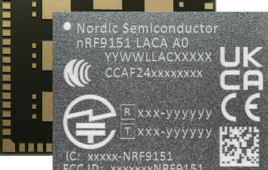The Intel studybook is built to be both a rigorous education tool and a sturdy playmate. It comes loaded with Intel’s Learning Series software, including an interactive ereader and LabCam applications. The rugged water and dust-proof design is constructed from a single piece of plastic, with shock absorbers surrounding the screen. It’s also drop tested from 70 centimeters, the height of a child’s desk, onto concrete.
“Students today live in a virtual world and this device can give a valid scientific experience for students in emerging economies, ” says Wayne Grant, director of research and planning for Intel’s Education Market Platforms Group, as he throws the tablet across the table to demonstrate its robustness. “Representations of knowledge are changing. Tools are now based in tablet environments.”
The tablet has a 7-inch screen, 1060 x 600 pixel resolution, and can run either Windows 7 or Android Honeycomb software. Some additional features include front and rear-facing cameras, a microphone, multi-touch LCD screen, light sensor support and mobile learning environment. It runs on an Intel Atom Z650 processor.
Intel doesn’t sell any of its line of classroom PCs, rather it licenses them to original design manufactures throughout the world, in the countries that will be using the devices. It’s then up to the manufacturer to determine the price. Grant cites one Portuguese manufacturer’s estimate to sell the tablets at just under $200.
“The tablet is not prescriptive,” Grant says, “Here’s the tool, go discover the world.”
 More than 7 million children in more than 2,000 classrooms in 36 countries around the world currently use Intel classmate PCs.
More than 7 million children in more than 2,000 classrooms in 36 countries around the world currently use Intel classmate PCs.
“An Intel studybook offers students limitless opportunities to enhance their learning experience,” says Kapil Wadhera, general manager of Intel’s Education Market Platform Group. “Expanding the Intel Learning Series portfolio of affordable, purpose-built educational devices brings us closer to our vision of enabling more students and teachers to participate in high quality education.”
To improve the classroom environment, the Intel Learning Series also added Teacher PC criteria for Ultrabook and Notebook systems. The criteria is created with the goal of keeping teachers up to speed with the new tools.
A recent study showed that One Laptop Per Child, another rugged classroom PC innovator, did not increase language and math test scores in the classrooms where laptops were used. This gap, the study found, is due to insufficient teacher training with the new technologies.
What do you think of the new Intel tablet? Do you think tablets have any classroom advantages over laptops?
Posted by Janine E. Mooney, Editor
April 10, 2012




